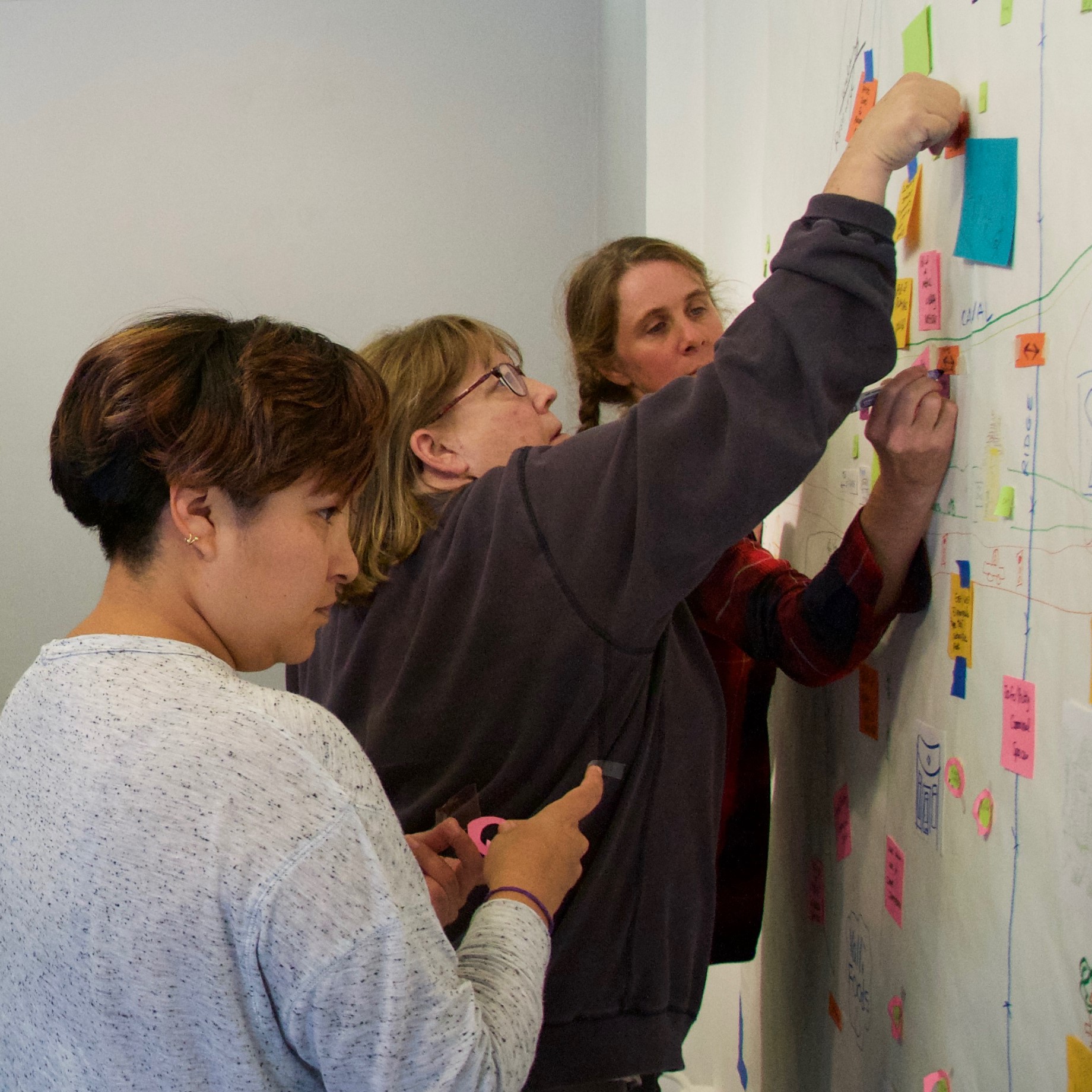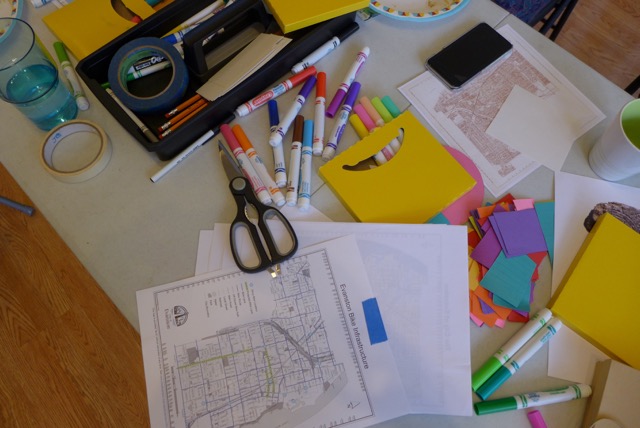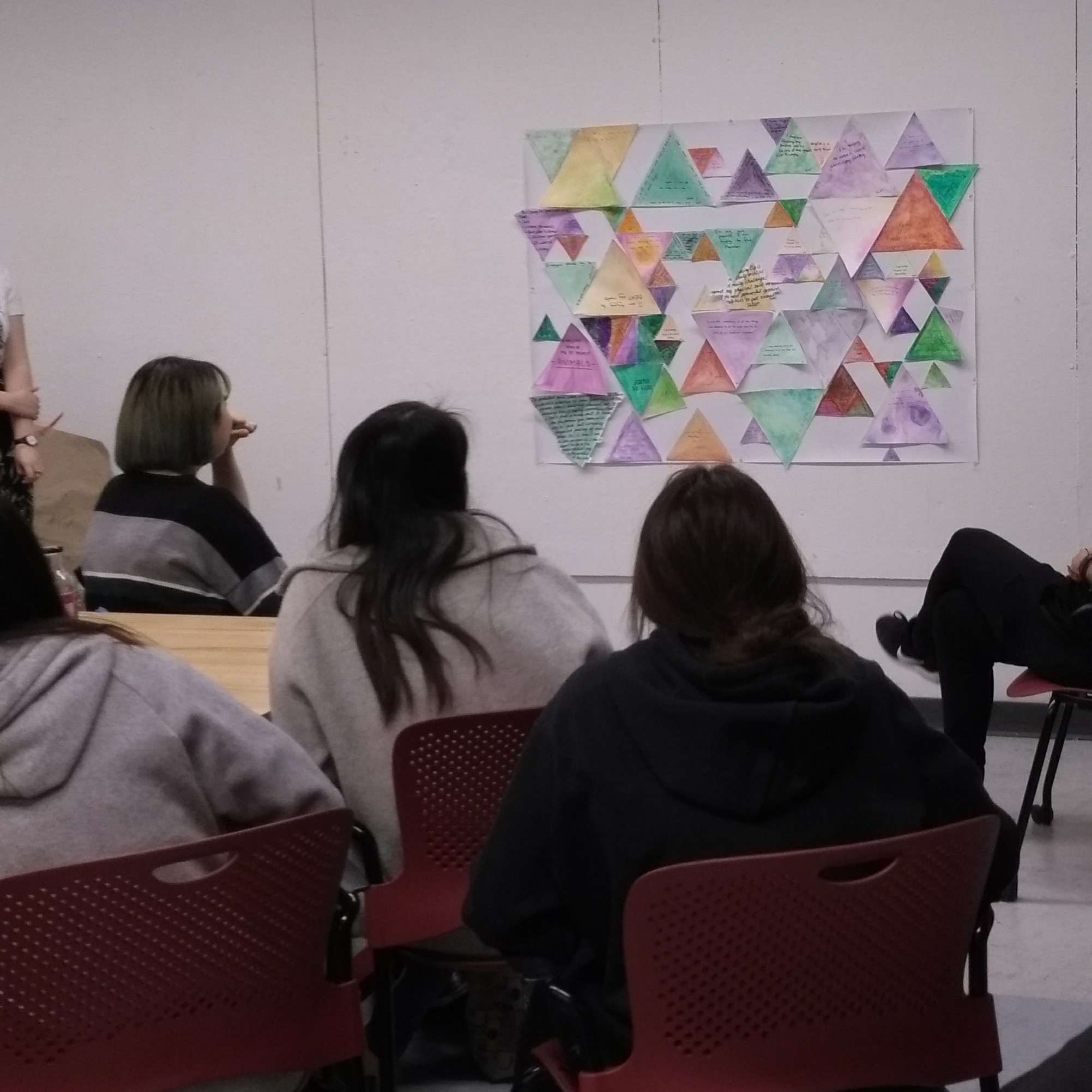Community Projects + Workshops
community :: a group of individuals who have an identifier,
a place, a task, and/or a goal in common
Geocommunetrics offers a menu of community projects to contribute to any given community's ongoing development, reflection, and strategy. Pulling from the fields of community art, art therapy, urban planning, and psycho-social work, these making-centric sessions offer an alternative way to build your team, deal with a transition, and plan steps forward. Ideal for community workers or small organizations that do community work, participants are positioned as artists, agents, and advocates in a hospitable space, where creativity is encouraged and the important of place is emphasized.
Geocommunetrics currently offers 3 workshops: Collective Cartography, The Body-Lands of Hope and Hurt, and TryAngles.
Please see full descriptions below.
Collective Cartography
Mapping has historically been kept in the hands of the mighty, but we know that all of our neighbors deserve power in discussions of community development, whatever role they hold in society.
During this workshop, a group analyzes the resources, barriers, and prospects of their shared social geography - be it a community organization, neighborhood, district, or city. Starting with a blank sheet, the cohort maps their community, using personal experience, public discourse, and imagination.
Groups are left with documentation of their map, a customized set of questions to consider, community engagement recommendations, and a reinforced social network.
Interested Parties :: Community Organizations, Neighborhood Groups, General Public, School Districts, Special Service Districts, etc.
Participants :: 5 - 15 individuals. Larger groups can be managed, but must be discussed.
Length :: 3 hours, 1 or 2 breaks.
The Body-Lands of Hope and Hurt
Research and experience has shown us that our bodies know more than just what's in the brain. Trauma is lodged in the body as pain and burden, but cultural celebration locks in deep joy and hope, too.
This workshop leads participants through reflections and analysis, identifying with and in their bodies, and asking what we are learning from our Selves. Participants collectively map hope and hurt in a body, using group space to share the burden and move toward healing as well as benefit from shared celebration. Special attention is given to those who bear the burdens of others.
The map can then be kept by or disseminated to the group.
Interested Parties :: Conference Attendees, Nursing or Healer Groups, Psycho-Social Health Practitioners, Artists, Students in Holistic Health, Caretakers, etc.
Participants :: 10+ individuals. Variable.
Length :: Varied, to be determined by group. 2 hours, or multiple sessions.
TryAngles
In a world with a short news cycle, encouraged busyness, and expedited consumerism, we are pushed away from the silent, the reflective, and the simple beauties.
the reDeveloped out of a Winter HeARTh program, TryAngles is a fun, low-barrier project that allows a group to reflect on Trials, Trying, and Trumphs, and take ownership for their actions. Participants are guided through simple, open-ended aesthetic expression, introspective journaling, group sharing, and collaborative creation.
Groups are encouraged to install the resulting piece-meal mural in a shared space or public forum.
Interested Parties :: School Groups, Students Elementary - Adult, Church Small Groups, Leadership Teams, Work Retreat Attendees,
Participants :: 5+ individuals. Variable and very flexible.
Length :: 90 min+. More time allows more materials and creative time.
Creator and Facilitator ::
Jason Brown
Jason is a practiced space designer, group facilitator, and community artist. He has worked with groups as young as third grade as well as older adults. All workshops are catered directly to the social, systematic, and aesthetic needs of the group and its participants concerning age, ability, and outcome. Key components of his sessions are honesty, creativity, and activity. All participants are participants, and all participants are equal.








